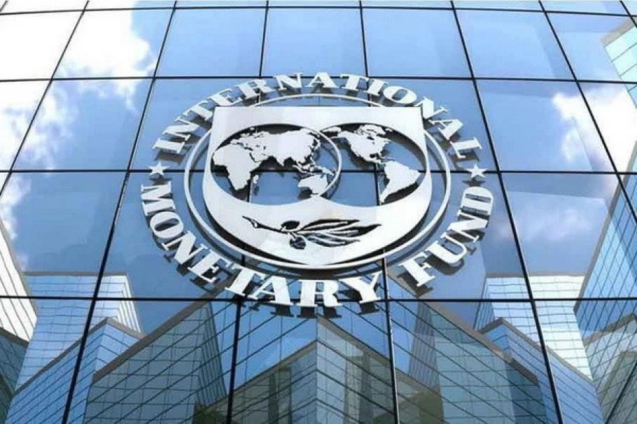A Think Thank, Think Progress Ghana has urged government to negotiate structural policies that will improve macroeconomic and financial market stability, and drive sustainable long-term economic growth in the country in its deliberation with the International Monetary Fund (IMF).
According to the Think Tank, government should also ensure that “any fiscal adjustment programme the government negotiates for should protect the poor and the vulnerable in the country.”
They added that it should also cover “the emerging middle class, protect our industries, protect our jobs, and improve productivity as well as increase the purchasing power of the Ghanaian worker.”
They, however, commended President Akufo-Addo for reaching out to IMF to help solve the economic challenges. According to Think Progress Ghana, "the IMF is a suitable option available to address our economic challenges in the short-term.”
“We should note that the government would not have initiated a bailout conversation with the IMF if better alternatives to solve our economic problems existed. Our bond credit rating has deteriorated, we do not have access to the sovereign bond market, and the domestic market is significantly inadequate and expensive. The usual way to finance our budget deficit is out of the question. Thus, going to the IMF is the plausible solution for us since the government has lost the fight against corruption.”
Think Progress Ghana further outlined some pointers government and IMF should consider in their negotiations:
1. The government should adhere to a strict fiscal program to restore and maintain debt sustainability. It should eliminate wasteful spending. To this end, we call for a reduction in the number of ministers and their deputies, get rid of deputy CEOs at state institutions, reduce debt portfolio of State-Owned Enterprises (SOEs) and establish proper corporate governance, drawdown on the number of Presidential Staffers employed under Article 71 of the 1992 Constitution, and eliminate ex-gratia.
2. We call for significant improvement in expenditure efficiency and strict adherence to procurement law and processes. Social expenditures should be thoroughly examined. We call for a complete review of some of the government’s flagship programs such as Free SHS and develop relevant and appropriate funding mechanism. Funding for this program in its current form is not sustainable. We support free access to education for the poor and the vulnerable in our society as enshrined in Article 25 of the 1992 constitution. Those who can afford should be made to pay. The government should design and implement mechanisms to identify the needy and grant them access to free quality education.
3. The government should focus on making long-term investments that have potential to generate revenue to service debts incurred from making those investments. We need to make long-term strategic social and infrastructural investments. We call for strategic investment in human capital, technology, health, agriculture, and roads. We should not continue to borrow for consumption.
4. Publish the home-grown policy based on which the negotiation with the IMF is ongoing. This will help restore some modicum of trust to governance and to allow for public scrutiny to engender some level of credibility.
5. Announce interim findings regarding public debt, interest payments requirements, and comprehensive fiscal and international reserves. And immediately provide information about the status of the stabilization and the heritage funds. Subsequently, the government should design and implement sound debt management strategies. The goal is to improve our credit risk profile, reduce inflation to a single digit from the current 30+%, reduce interest rates, and restore and maintain confidence in the cedi.
6. Immediately start the buildup of our sovereign wealth funds.
7. Monetary and fiscal policies should be well coordinated.
8. We call for an improvement in budget transparency.
9. Design and implement strategies to improve revenue collection as well as identify additional revenue sources. For example, property tax is a potential revenue source that is untapped by the government. Publish areas that are likely to be affected by tax increases.
10. Design and implement policies that will let the private sector work. Jobs are best created by businesses and entrepreneurs, not by government.
11. Hold leadership accountable for their decisions and actions. The government should make corruption unattractive to government officials. Provide pragmatic information about measures to be taken to deal with official corruption.
12. Provide information on wage and emolument statistics and possible employment developments under an IMF program
13. We call on the IMF to take extra steps to interact with the public about public debts, reserves, balance of payment status and the general situation as assessed by the agreed data. This is important because all the fiscal misdeeds in terms of borrowing, procurement breaches, and corruption that culminated into the bad state of the economy happened when Ghana was under an IMF program from 2017 to early part of 2019.
Latest Stories
-
Real Madrid beat Sevilla to keep pressure on leaders Atletico
11 minutes -
Liverpool put six past Spurs to go four points clear
13 minutes -
Manchester United lose 3-0 at home to Bournemouth yet again
17 minutes -
CHAN 2024Q: ‘It’s still an open game’ – Didi on Ghana’s draw with Nigeria
25 minutes -
CHAN 2024Q: Ghana’s Black Galaxies held by Nigeria in first-leg tie
1 hour -
Dr Nduom hopeful defunct GN bank will be restored under Mahama administration
2 hours -
Bridget Bonnie celebrates NDC Victory, champions hope for women and youth
2 hours -
Shamima Muslim urges youth to lead Ghana’s renewal at 18Plus4NDC anniversary
3 hours -
Akufo-Addo condemns post-election violence, blames NDC
3 hours -
DAMC, Free Food Company, to distribute 10,000 packs of food to street kids
4 hours -
Kwame Boafo Akuffo: Court ruling on re-collation flawed
5 hours -
Samuel Yaw Adusei: The strategist behind NDC’s electoral security in Ashanti region
5 hours -
I’m confident posterity will judge my performance well – Akufo-Addo
5 hours -
Syria’s minorities seek security as country charts new future
6 hours -
Prof. Nana Aba Appiah Amfo re-appointed as Vice-Chancellor of the University of Ghana
6 hours

